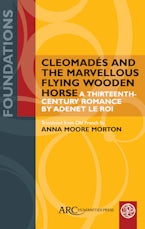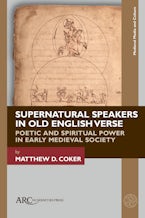- Home
- Medieval Media and Culture
- literary criticism
- language arts & disciplines
- Gender, Reading, and Truth in the Twelfth Century
Gender, Reading, and Truth in the Twelfth Century
The Woman in the Mirror
Series: Medieval Media and Culture
434 Pages, Trim size: 6 x 9 in
- Hardcover
- 9781641893770
- Published: May 2020
- eBook (PDF)
- 9781641893787
- Published: June 2020
Dr. Morgan Powell is a scholar of the media history of the Middle Ages and Lecturer of English at the Zurich University of Applied Sciences and Arts.
Morgan Powell’s Gender, Reading, and Truth in the Twelfth Century: The Woman in the Mirror is a meticulously written and highly sophisticated book that argues for a re-evaluation and new understanding of the act of reading and of the meaning of a female reader (including in the form of an iconographic representation in manuscripts and as a textual motif) in the long twelfth century. Eschewing binaries such as literate/illiterate, vernacular/Latin, oral/written, male/female, and even text/picture, Powell’s approach offers a much more complex and ultimately convincing approach to understanding the rise of vernacular literature and the role women--or rather “the woman”--played in the twelfth century.
~Alison L. Beringer, The Medieval Review TMR 23.05.02
Morgan Powell begins this impressive, well-written volume by taking issue with the connection made in German scholarship (and in that of other European languages) between the emer- gence of vernacular literatures and the evidence of women’s involvement in bookish culture in the twelfth and thirteenth centuries. The corresponding argument that an increase in women’s literacy arises from this emergence is, Powell finds, fatally flawed. With broad strokes he sweeps this “literacy hypothesis” aside, at least as far as the long twelfth century is concerned.[...]
Some readers might stumble at the language of originality and genius that filters in and out of Powell’s narrative, particularly in the chapters focusing on Chrétien and Wolfram. Yet, when we consider that all writers at this time learn to read or write in a religious context regardless of gender, the notion that a mode of knowing emerging out of this context would also manifest in what we call secular literature is one of those insights that is as profound as it is obvious, once it is pointed out.
~Sara S. Poor, Speculum 99, no. 1 (January 2024): 269-70











